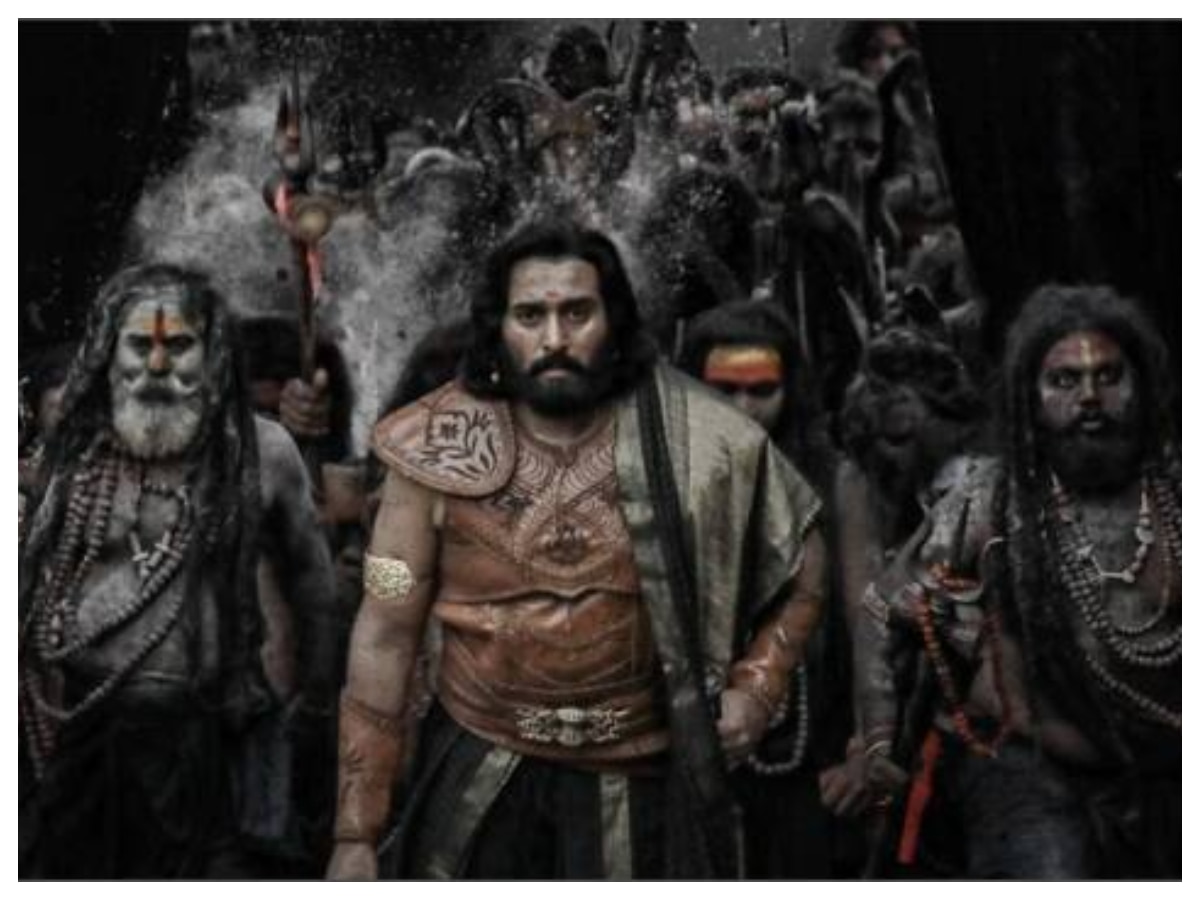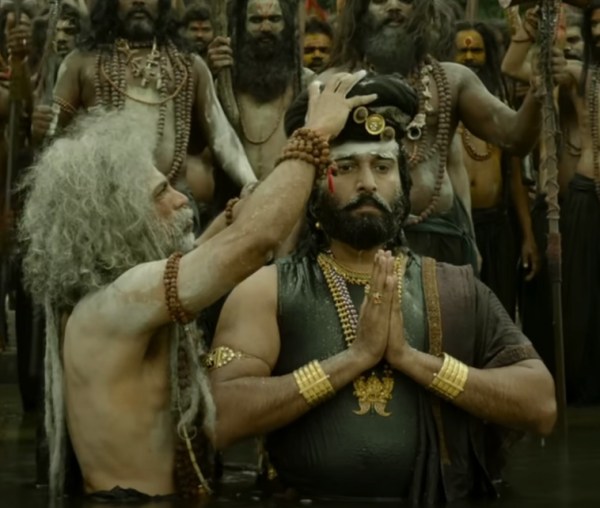In the recently released cinematic masterpiece, "Ponninyan Selvan: Part 2," directed by the talented Maniratnam and inspired by Kalki Krishnamoorthi's renowned novel, a fascinating tale unfolds. Seamlessly blending historical research with fictional characters, the film captured the hearts and minds of audiences around the world.
One captivating character in the movie is Madhuranthakan Cholan, who garners immense support from the devoted followers of Lord Shiva, known as the shiva bhakts. As the kingdom's current king, Sundaracholan, prepares to announce his son, Adityakarikala Cholan, as his successor, unexpected events take place, setting the stage for an intriguing narrative.
Madhuranthakan Cholan, backed by the passionate shiva bhakts, orchestrates a grand procession to the majestic palace. Symbolizing their unwavering faith, there is a poignant scene where Madhuranthakan undergoes a purification ritual in a sacred lake, followed by the application of ash on his forehead by the shiva bhakts. It is in this moment that the shiva bhakts declare him as the rightful future king and rally behind him. The director's portrayal of this powerful display resonated deeply with viewers, highlighting the shiva bhakts' desire to actively participate in shaping the nation's political landscape.
Interestingly, a similar theme emerges when we turn our attention to real-life events. During the inauguration of the new, iconic triangular-shaped parliament, a significant moment unfolded. The Prime Minister, in a show of devotion, received blessings and applied ash on his forehead. Furthermore, a Shekol, a historical artifact gifted by the shiva bhakts to the first Prime Minister, Jawaharlal Nehru, was brought forth, symbolizing the enduring connection between the political leadership and the spiritual community. This parallel between the movie and reality highlights the significant influence of shiva bhakts on the political arena.
However, the film's narrative and the real-life event also raise an important question: if we were to have a Muslim Prime Minister or a Christian Chief Minister in a state, would their religious practices be similarly accepted in the parliament? It is crucial to navigate the delicate balance between religious freedom and the principles outlined in the constitution of our secular nation.
Maintaining a secular society is integral to a progressive nation like ours. While individuals have the right to practice their faith, it is equally important to separate personal beliefs from public duty. Emphasizing unity and equality, our constitutional values guide us to prioritize the interests of all citizens, regardless of their religious affiliations.
Looking at countries that prioritize a specific religion and allow it to influence policy-making, we witness challenges arising from such an approach. As diverse as Britain, the Middle East, or Pakistan may be, they grapple with the complexities that arise from favoring one religion over others. In contrast, India thrives on its inherent diversity, considering it a formidable strength. Our nation's vision lies in an inclusive society where power is shared among representatives, fostering a better future for all.
India, with its unique identity and ideals, stands as a shining example of a nation built on the principles of unity in diversity. As we move forward, let us preserve our cherished ideas and focus on realizing our shared vision for a harmonious and progressive India, where the constitution guides us towards a brighter future.
Credits of the images used are to the those who have taken it. and I have used the url from their articles.





No comments:
Post a Comment